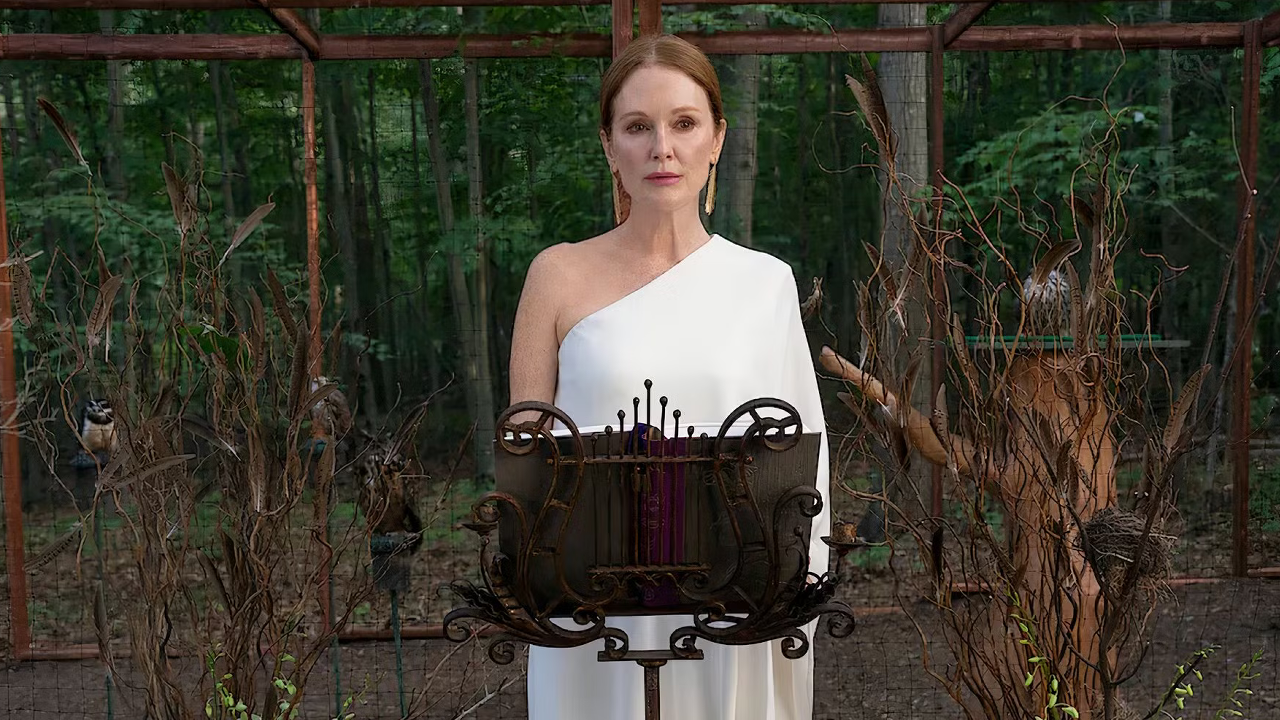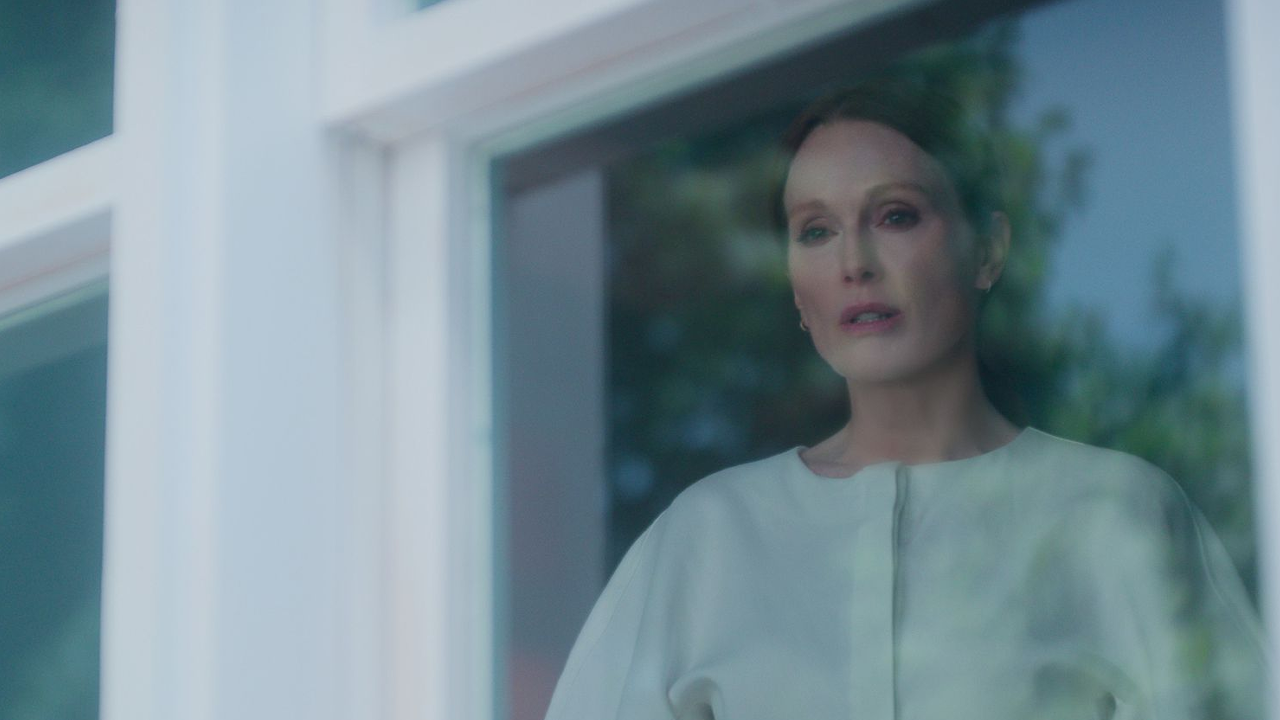The characters of Sirens are elegant, messy and dangerously compelling. In this series, we unravel them layer by layer. And of course, we begin with Michaela. Because everyone falls for her first.

When Netflix labeled Sirens a “dark comedy,” it must have been a joke – because while the show is certainly dark, the laughs are few and far between.
Instead, Sirens is a deeply constructed character study and delivers a sharply observed, psychologically rich portraits of broken relationships, emotional manipulation, and the unspoken dynamics of power.
Interviews with cast and creators give us some clarity about how the characters work, but the true genius of Sirens lies in what remains unsaid. In this series, we’ll dissect its characters one by one, starting with Michaela – because like everyone else, we couldn’t help but fall under her spell.
The Mystical "Siren"
To the outside world, Michaela Kell – Kiki, as her inner circle calls her – has it all: a serene life on an exclusive island, a wildlife sanctuary, the ability to summon and dissolve social tensions with the turn of a phrase.
Once a sharp attorney, she now channels her intellect and authority into philanthropy, curated events, and the caretaking of endangered species and emotionally fractured young women.
Unshakable Self Confidence
What makes Michaela so captivating isn’t her wealth or status, though both certainly help – it’s her unshakable sense of self.
She moves with such deliberate calm, speaks with such precise softness, that disagreement feels like a moral failing. Her questions are rarely questions. They are veiled commands. She never raises her voice because she never has to.

Calculated Randomness
But underneath the immaculate exterior lies something more controlled than calm: calculated performance. Michaela is not simply secure – she is strategic. She knows that perfection alienates, so she feigns imperfection.
When she asks her stylist to make her hair look a bit messier, it’s not out of vanity but optics: she’s manufacturing relatability.
Like many modern elites, Michaela knows that appearing normal is more important than being so. Her taste is minimalist, her grief curated. Even the burial of her falcon feels like a PR event more than a moment of real loss.

An Enigmatic Woman
Michaela’s role in the island’s mythology is both the one of a queen and a witch.
Her enigmatic presence invites reverence and suspicion. People sense she’s hiding something, and that sense becomes prophecy.
When rumors swirl about the disappearance of Peter’s first wife, it’s easy to believe Michaela had a hand in it – not because she did, but because she could have. She’s that untouchable, that precise, that unknowable. And it’s this mysterious facade that makes her both endlessly fascinating and seemingly dangerous.
How She Uses People
Her hypnotic power, in large part, comes from this performative image of a good person – and from her ability to offload discomfort onto others. She uses her assistant Simone as both a shield and a proxy: Simone is sent to deliver the bad news, absorb the gossip, clean up the mess.
Michaela remains untouched, smiling from her social perch while others bruise in her name. People resent Simone, not Michaela – and Michaela, keenly aware, allows this dynamic to flourish.

Yet her manipulations are rarely overt. She doesn’t punish; she persuades. She doesn’t demand; she implies. And if you fail under her guidance, it’s not because she set you up to fail – it’s because, in her words, “you weren’t ready.”
This is gaslighting disguised as concern, and it’s effective because Michaela’s control is maternal, not tyrannical. She coaxes people into believing she’s their protector, even as she chips away at their agency.
The White Knight and Mother
Much of this complex behavior seems rooted in a saviour complex – one not born exclusively from altruism (although she could wholeheartedly believe it is), but from grief and ego. Michaela surrounds herself with the fragile, the traumatized, and the socially invisible.
She takes them in, elevates them – but never quite lets them go. Her connection to endangered birds feels symbolic: she doesn’t only want to help the broken, she wants to own their recovery.

That desire may stem, in part, from loss. Michaela, we learn, could not have children. Her maternal instincts are rerouted into other forms like mentorship.
She adopts the tone of a mother even to women nearly her age, and when Simone’s father, addled by dementia, mistakes her for his daughters’ actual mother, the moment is uncanny, not incorrect. Because she plays the role of a mom convincingly.
What complicates Michaela – and what saves her from being a villain instead of a complicated soul – is that her feelings towards people may be rooted in truth.

While she exploits Simone, she also defends her. Her confrontation with Peter about his affair with Simone reveals a rare flash of authentic emotion, even jealousy. We glimpse the real Michaela – not the image, but the person: lonely, frightened of being left behind, clinging to the illusion of control. Her saviour complex isn’t just a tactic – it’s a need.
Michaela “Kiki” Kell isn’t a saint – her behavior can be manipulative, even cruel. But she’s no monster either. She’s layered, human, and full of contradictions. That complexity is what makes her one of Sirens’ most compelling and essential characters.


































